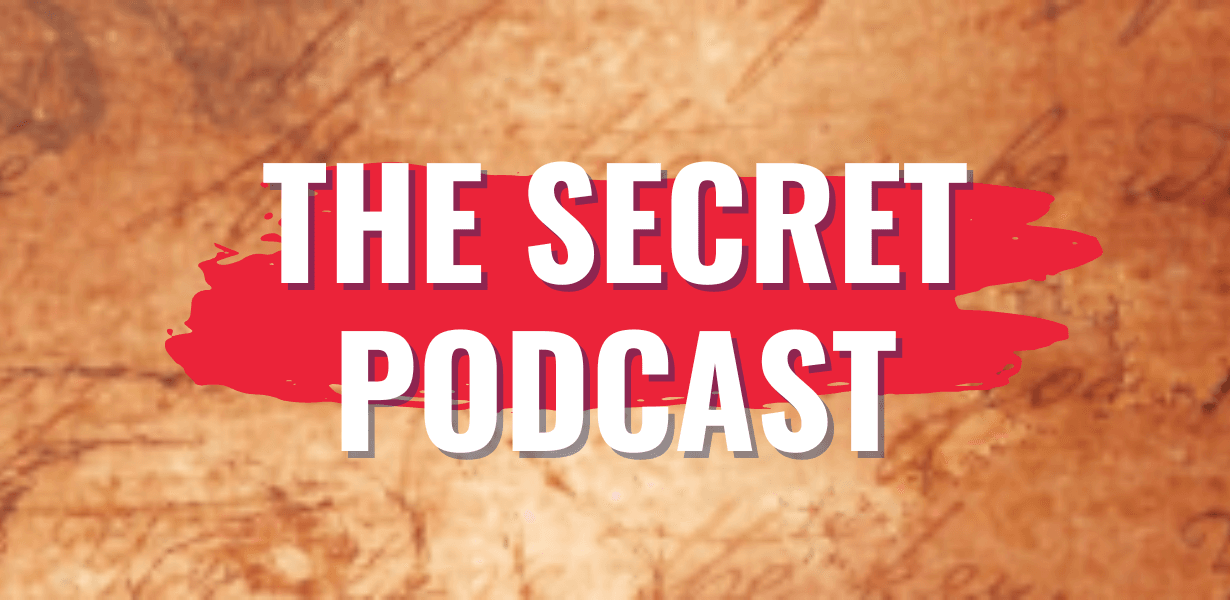Curioso sobre a força que molda sua vida? Nosso podcast, inspirado no best-seller de Rhonda Byrne, “O Segredo”, explora a Lei da Atração de forma prática e inspiradora. A cada episódio, mergulhe nos princípios da manifestação, do pensamento positivo à visualização, com dicas para atrair a vida que você deseja. Prepare-se para cocriar sua realidade. Welcome! Let’s do this!
A: Welcome back, everyone. You’ve sent us some really interesting material to dive into, focusing on Rhonda Byrne’s The Secret. And lots of you have clearly spent time with this, highlighting things, asking questions. (Bem-vindos de volta, pessoal. Vocês nos enviaram material realmente interessante para explorar, focando no livro O Segredo, de Rhonda Byrne. E muitos de vocês claramente dedicaram tempo a isso, destacando trechos e fazendo perguntas.)
B: Yeah, it’s great to see that engagement. So our mission today is to really get under the hood of this great secret that Byrne talks about discovery. (Sim, é ótimo ver esse engajamento. Então, nossa missão hoje é realmente entender a fundo esse grande segredo sobre o qual Byrne fala como uma descoberta.)
A: Right. What is it exactly? And how is it supposed to work in everyday life? (Certo. O que é exatamente? E como isso deve funcionar na vida cotidiana?)
B: Well, she connects it to a whole lineage of thinkers, doesn’t she? People like Plato, Newton, Einstein, suggesting they all knew about this. (Bem, ela conecta isso a toda uma linhagem de pensadores, não é? Pessoas como Platão, Newton, Einstein, sugerindo que todos eles sabiam disso.)
A: Which is a pretty bold claim. So we need to unpack what this actually is. (O que é uma afirmação bastante ousada. Então, precisamos desvendar o que isso realmente é.)
B: Absolutely. And at its heart, it’s this idea called the law of attraction, the core principle being like attracts like. (Com certeza. E no cerne disso está essa ideia chamada lei da atração, cujo princípio central é que semelhante atrai semelhante.)
A: But specifically for thoughts, right? The idea that our thoughts are like magnets pulling experiences towards us. (Mas especificamente no caso dos pensamentos, certo? A ideia de que nossos pensamentos são como ímãs atraindo experiências para nós.)
B: Exactly. Think of your thoughts having a frequency, like a radio signal. You’re constantly broadcasting. And that signal goes out into the universe, finds things on the same frequency, and brings them back to you. It’s a feedback loop. (Exatamente. Pense nos seus pensamentos como tendo uma frequência, como um sinal de rádio. Você está constantemente transmitindo. E esse sinal vai para o universo, encontra coisas na mesma frequência e as traz de volta para você. É um ciclo de retorno.)
A: Okay, so the book says, and this is quite something, that you are the most powerful magnet, the most powerful transmission tower in the universe. (Ok, então o livro diz, e isso é impressionante, que você é o ímã mais poderoso, a torre de transmissão mais poderosa do universo.)
B: It’s a profound statement, isn’t it? It implies that your thoughts right now aren’t just thoughts. They’re actively building your future. (É uma afirmação profunda, não é? Isso implica que seus pensamentos agora não são apenas pensamentos. Eles estão ativamente construindo o seu futuro.)
A: What you focus on is what you get, essentially. (Aquilo em que você foca é o que você recebe, basicamente.)

B: That’s the gist. Your thoughts become things, as the book puts it very directly. (Essa é a essência. Seus pensamentos se tornam coisas, como o livro afirma de forma bem direta.)
A: Which leads to that whole don’t want problem Byrne talks about. (O que nos leva àquela questão do “não quero” sobre a qual Byrne fala.)
B: Yeah. (É.)
A: How focusing on what you don’t want actually brings more of it. (Como focar naquilo que você não quer na verdade atrai mais disso.)
B: Right. Because the law apparently doesn’t care if you label a thought as want or don’t want. It just responds to the focus, the energy you put there. (Exato. Porque a lei aparentemente não se importa se você rotula um pensamento como “quero” ou “não quero”. Ela apenas responde ao foco, à energia que você coloca ali.)
A: So thinking I don’t want to be in debt keeps you focused on debts. (Então pensar “eu não quero estar endividado” mantém você focado em dívidas.)
B: Precisely. You’re vibrating at the frequency of debt or lack. So that’s what the signal attracts more of. It’s kind of counterintuitive for many people. (Precisamente. Você está vibrando na frequência da dívida ou da escassez. Então é isso que o sinal atrai mais. É meio contraintuitivo para muitas pessoas.)
A: There’s that story in the book about Robert, the student. He was dealing with a lot of negativity, harassment, prejudice. (Tem aquela história no livro sobre o Robert, o estudante. Ele estava lidando com muita negatividade, assédio, preconceito.)
B: Yeah. Homophobic stuff, heckling when he did comedy. Just a constant barrage. (Sim. Coisas homofóbicas, vaias quando ele fazia comédia. Era um bombardeio constante.)
A: And the turning point came when he shifted his focus. (E o ponto de virada veio quando ele mudou o foco dele.)
B: Exactly. He stopped replaying the negative stuff in his head and deliberately started focusing on what he did want: respect, you know, positive interactions, audiences enjoying his work. (Exatamente. Ele parou de ficar repetindo as coisas negativas na cabeça e passou a focar deliberadamente no que ele queria: respeito, sabe, interações positivas, plateias curtindo o trabalho dele.)
A: And things actually changed. The harassment stopped. (E as coisas realmente mudaram. O assédio parou.)
B: According to the story, yes. His reality shifted because his dominant thoughts, his frequency shifted. It really makes you think about where your own focus usually lies. (De acordo com a história, sim. A realidade dele mudou porque os pensamentos dominantes dele, a frequência dele, mudou. Isso realmente faz a gente pensar onde está o nosso próprio foco.)
A: So our feelings are key indicators here then, like a feedback system. (Então nossos sentimentos são indicadores-chave aqui, como um sistema de feedback.)
B: That’s exactly how it’s described. Feelings tell you what frequency you’re broadcasting on. Feeling good means you’re aligned with what you want. (É exatamente assim que é descrito. Os sentimentos te dizem em qual frequência você está transmitindo. Sentir-se bem significa que você está alinhado com o que deseja.)
A: And feeling bad is like a warning, like, wrong frequency, change the channel. (E sentir-se mal é como um aviso, tipo, frequência errada, mude de canal.)

B: Kind of, yeah. It’s communication from the universe saying, hey, you’re focused on something that’s bringing more negativity. Feeling bad attracts more bad stuff. Feeling good attracts more good stuff. (Meio que isso, sim. É uma comunicação do universo dizendo: “ei, você está focando em algo que está trazendo mais negatividade”. Sentir-se mal atrai mais coisas ruins. Sentir-se bem atrai mais coisas boas.)
A: It’s not just thinking, it’s feeling it. (Não é só pensar, é sentir mesmo.)
B: Absolutely. You attract what you are feeling. (Com certeza. Você atrai o que está sentindo.)
A: That explains the bad day spiral, doesn’t it? One thing goes wrong, you feel awful, then another thing happens. (Isso explica aquela espiral do “dia ruim”, né? Uma coisa dá errado, você se sente péssimo, e aí outra coisa acontece.)
B: And it just keeps going because your negative feeling is now the dominant signal you’re sending out.(E aquilo só continua porque o seu sentimento negativo vira o sinal dominante que você está transmitindo.)
A: So how do you break that cycle? The book talks about secret shifters. (Então como quebrar esse ciclo? O livro fala sobre os “transformadores secretos”.)
B: Yeah. Simple things that can instantly change how you feel, like putting on your favorite song, right? Or thinking about someone you love. (Sim. Coisas simples que podem mudar instantaneamente como você se sente, tipo colocar sua música favorita, né? Ou pensar em alguém que você ama.)
A: Or even just stepping outside into nature for a minute. (Ou até simplesmente sair e dar uma volta na natureza por um minuto.)
B: Exactly. Anything that shifts your focus and genuinely lifts your mood, that shift changes your frequency, disrupts the negative pattern. (Exatamente. Qualquer coisa que mude seu foco e eleve de verdade seu humor, essa mudança altera sua frequência e interrompe o padrão negativo.)
A: Okay, so that leads into the actual process the book outlines for manifesting things: the creative process, ask, believe, receive. (Ok, isso nos leva ao processo que o livro descreve para manifestar coisas: o processo criativo — pedir, acreditar, receber.)
B: Right. And it uses that metaphor of Aladdin’s lamp. The universe is the genie. (Isso. E o livro usa aquela metáfora da lâmpada do Aladdin. O universo é o gênio.)
A: Always saying, your wish is my command. (Sempre dizendo: “seu desejo é uma ordem.”)
B: But the key is, the genie of the law of attraction takes everything you think, feel, say, and do as your command. It assumes you want what you’re focusing on. (Mas o ponto-chave é que o gênio da lei da atração interpreta tudo o que você pensa, sente, diz e faz como um comando. Ele assume que você quer aquilo em que está focando.)
A: So the first step, asking, needs to be really clear. Yeah. (Então o primeiro passo, pedir, precisa ser bem claro. É.)
B: You can’t be vague. You need to know exactly what you want and ask for it specifically. Like ordering from a catalog, Byrne says, you need the item number, not just the general category. (Você não pode ser vago. Precisa saber exatamente o que quer e pedir de forma específica. Como fazer um pedido em um catálogo, a Byrne diz — você precisa do número do item, não só da categoria geral.)

A: Makes sense. Then comes believing. This seems harder, acting as if you already have it. (Faz sentido. Depois vem acreditar. Isso parece mais difícil — agir como se já tivesse aquilo.)
B: That’s the core of it. It’s about embodying the feeling of the wish fulfilled. Not just hoping, but having this unwavering faith, this knowing that it’s already yours or on its way. (Esse é o cerne da questão. Trata-se de incorporar a sensação do desejo realizado. Não é só esperar, mas ter uma fé inabalável, essa certeza de que já é seu ou está a caminho.)
A: That sounds like a big leap for some people. How do you generate that feeling of belief if it’s not actually here yet? (Isso parece um salto grande pra muita gente. Como gerar essa sensação de crença se a coisa ainda não está aqui?)
B: It’s practice, I think. Visualization helps, affirmations, but really cultivating the feeling of having it now. That feeling of belief is described as the greatest power you have. (É prática, eu acho. Visualização ajuda, afirmações também, mas principalmente cultivar a sensação de já ter aquilo agora. Esse sentimento de crença é descrito como o maior poder que você tem.)
A: And what about the how? How it’s going to happen? (E quanto ao “como”? Como isso vai acontecer?)
B: Ah, that’s the tricky bit. The book insists you have to let go of the how. Trying to figure it out means you don’t fully trust the process. (Ah, essa é a parte complicada. O livro insiste que você precisa desapegar do “como”. Tentar descobrir o como significa que você não confia totalmente no processo.)
A: It shows the lack of faith. (Mostra falta de fé.)
B: Exactly. The hows are the domain of the universe. Your job is the asking and the believing, the feeling. The universe handles the logistics. (Exatamente. Os “comos” são domínio do universo. Seu papel é pedir, acreditar, sentir. O universo cuida da parte logística.)
A: Which connects to the final step, receiving. You have to feel good to receive. (O que conecta ao passo final: receber. Você precisa se sentir bem para receber.)
B: Yes, because feeling good puts you on the frequency of what you’ve asked for. You become a vibrational match. That’s why things like gratitude and joy are so emphasized. (Sim, porque sentir-se bem te coloca na frequência daquilo que você pediu. Você vira um “par vibracional”. Por isso coisas como gratidão e alegria são tão enfatizadas.)
A: Affirmations like, I am receiving now, help tune into that. (Afirmações como “estou recebendo agora” ajudam a se conectar com isso.)
B: They can, yeah. And there’s that anecdote about Marcy, who apparently felt everything into existence. She really focused on the feeling of having her desires. (Podem ajudar, sim. E tem aquela história da Marcy, que aparentemente sentiu tudo até se manifestar. Ela focava mesmo na sensação de já ter o que desejava.)
A: What about action? Do you just sit back and wait? (E a ação? Você só senta e espera?)
B: Not necessarily. The idea is that you might get an intuitive nudge and inspired action, but it shouldn’t feel like hard work or struggle. It should feel joyful, easy. (Não necessariamente. A ideia é que você pode receber um empurrãozinho intuitivo e tomar uma ação inspirada, mas não deve parecer algo trabalhoso ou difícil. Deve parecer algo alegre, fácil.)
A: Like the universe guiding you. (Como se o universo estivesse te guiando.)
B: That’s the concept. Trusting your intuition, those little urges that feel good. (Esse é o conceito. Confiar na sua intuição, nesses impulsos sutis que fazem você se sentir bem.)
A: Okay, so let’s talk about applying this. Weight, for instance. The advice is focus on the perfect weight, not on losing weight. (Ok, então vamos falar sobre aplicar isso. Peso, por exemplo. O conselho é focar no peso ideal, não em perder peso.)
B: Right, same principle. Focusing on losing weight keeps weight, and often the feeling of being overweight central in your mind. (Exato, mesmo princípio. Focar em perder peso mantém o peso — e muitas vezes a sensação de estar acima do peso — no centro da sua mente.)
A: The book claims being overweight stems from fat thoughts, not just food. (O livro afirma que estar acima do peso vem de pensamentos “gordos”, não só da comida.)
B: Yeah, it really emphasizes the mental and emotional component, that your thoughts and beliefs about your body are primary. Food is secondary. (Sim, ele realmente enfatiza o componente mental e emocional — que seus pensamentos e crenças sobre seu corpo são o principal. A comida é secundária.)
A: So visualizing the perfect body, feeling how good that feels, that’s the work. (Então visualizar o corpo perfeito, sentir como isso é bom — esse é o trabalho.)
B: That’s the core idea. And things like mindful eating, really savoring food, as Wallace Waddell suggested, helps shift the focus too. Byrne herself talks about maintaining her weight by shifting from fat thoughts or diet thoughts to just focusing on her desired weight. (Essa é a ideia central. E coisas como comer com atenção plena, saborear realmente a comida, como Wallace Waddell sugeriu, ajudam a mudar o foco também. A própria Byrne fala sobre manter o peso mudando de pensamentos de gordura ou de dieta para simplesmente focar no peso desejado.)

A: And manifesting other things. That feather story is quite famous. (E manifestar outras coisas. Aquela história da pena é bem famosa.)
B: It is. It’s a simple example. Someone wanted proof, visualized a very specific, unique feather. (É sim. É um exemplo simples. Alguém queria uma prova e visualizou uma pena muito específica, única.)
A: And then found it, just like that. (E então encontrou — assim, do nada.)
B: Found the exact feather, yeah. Disappeared in their path. A clear sign for them that focusing their thought energy worked. (Encontrou exatamente a pena que visualizou. Apareceu no caminho dessa pessoa. Um sinal claro de que focar a energia do pensamento funcionou.)
A: And David Shermer, finding parking spaces. (E o David Shermer, encontrando vagas de estacionamento.)
B: Yeah, just visualizing an empty spot right where he wanted it and expecting it to be there. It highlights the power of expectation. (Sim, ele simplesmente visualizava uma vaga exatamente onde queria e esperava que ela estivesse lá. Isso mostra o poder da expectativa.)
A: Kind of like Prentice Mulford’s idea of thinking your day in advance, setting the intention. (Tipo a ideia do Prentice Mulford de pensar o seu dia com antecedência, definir a intenção.)
B: Exactly. Intentionally shaping your experience beforehand. And the opposite, rushing, feeling stressed, just attracts more reasons to rush and feel stressed. (Exatamente. Moldar intencionalmente sua experiência com antecedência. E o oposto — correr, sentir-se estressado — só atrai mais motivos para correr e se estressar.)
A: Money. Always a big one. Focus on wealth, not lack. (Dinheiro. Sempre um grande tema. Focar na riqueza, não na escassez.)
B: Standard application of the principle, thinking, I don’t have enough money, just keeps you in the energy of lack, blocking more from coming in. (Aplicação padrão do princípio: pensar “eu não tenho dinheiro suficiente” te mantém na energia da escassez, bloqueando a entrada de mais dinheiro.)
A: So you have to imagine having it. Feel abundant now. (Então você tem que imaginar que já tem. Sentir-se abundante agora.)
B: Pretty much. Use your imagination. Feel the joy, the security of having plenty. That bank of the universe check is a tool for that visualization. (Exatamente. Use sua imaginação. Sinta a alegria, a segurança de ter em abundância. Aquele cheque do banco do universo é uma ferramenta para essa visualização.)
A: Byrne’s own story about her company facing ruin. (A história da própria Byrne sobre sua empresa enfrentando a falência.)
B: Yeah, a really powerful example. Things looked dire, but she consciously shifted her focus to abundance. Visualized checks coming in, acted as if everything was fine. (Sim, um exemplo bem poderoso. As coisas pareciam péssimas, mas ela conscientemente mudou seu foco para a abundância. Visualizou cheques chegando, agiu como se tudo estivesse bem.)

A: And it turned around. (E tudo mudou.)
B: Apparently so. Unexpected money came through. It really underlines the idea that your inner state can influence external events. And the fastest way to attract money, be happy now. (Aparentemente sim. Dinheiro inesperado apareceu. Isso realmente reforça a ideia de que seu estado interior pode influenciar os eventos externos. E a forma mais rápida de atrair dinheiro é estar feliz agora.)
A: And changing your language. Saying, I can afford that, even if you can’t right now. (E mudar sua linguagem. Dizer “eu posso pagar isso”, mesmo que agora você não possa.)
B: It’s about shifting the mindset, reprogramming that feeling of lack. Shermer, visualizing checks, treating bills like checks with extra zeros. Playful ways to cultivate abundance thinking. (É sobre mudar a mentalidade, reprogramar aquele sentimento de escassez. Shermer visualizava cheques, tratava boletos como se fossem cheques com zeros a mais. Formas lúdicas de cultivar o pensamento de abundância.)
A: What about Laurel Langmire’s point about work hard for money? (E quanto ao ponto da Laurel Langmire sobre trabalhar duro por dinheiro?)
B: Oh, yeah. Challenging that deeply ingrained belief. Replacing it with money comes easily and frequently. It’s about changing the narrative you tell yourself about money. (Ah, sim. Questionar essa crença profundamente enraizada. Substituí-la por “o dinheiro vem fácil e com frequência”. É sobre mudar a narrativa que você conta a si mesmo sobre o dinheiro.)
A: And giving. Giving joyfully attracts more. (E dar. Dar com alegria atrai mais.)
B: Yes. Giving from a place of abundance signals to the universe that you have abundance, which then attracts more. It has to be joyful giving, though, not resentful. (Sim. Dar a partir de um lugar de abundância sinaliza ao universo que você tem abundância, e isso atrai mais. Mas tem que ser uma doação alegre, não com ressentimento.)
A: Relationships seem simpler. Focus on appreciation, not complaints. (Relacionamentos parecem mais simples. Foque na gratidão, não nas reclamações.)
B: What you focus on expands. Appreciate the good things in someone, you’ll likely see more of them. Focus on their flaws. Well, you know. (Aquilo em que você foca se expande. Aprecie as coisas boas em alguém, você provavelmente verá mais delas. Foque nos defeitos… bom, você sabe.)
A: Health is a big one, too. The body is a product of thought. Using the placebo effect as evidence. (Saúde também é um grande tema. O corpo é um produto do pensamento. Usar o efeito placebo como evidência.)
B: It’s definitely one of the more provocative areas. The placebo effect does show the mind’s power over the body. The Secret takes it further, suggesting negative thoughts, focusing on illness, can hold disease in the body. (É definitivamente uma das áreas mais provocativas. O efeito placebo mostra o poder da mente sobre o corpo. O Segredo vai além, sugerindo que pensamentos negativos e o foco na doença podem manter a enfermidade no corpo.)
A: So think perfect health. Focus on wellness, not the sickness. (Então pense em saúde perfeita. Foque no bem-estar, não na doença.)
B: That’s the advice. And try not to talk about being unwell constantly, because that reinforces the focus on illness. (Esse é o conselho. E tente não falar o tempo todo sobre estar doente, porque isso reforça o foco na doença.)
A: And the idea you can’t catch something unless you think you can? That’s challenging. (E a ideia de que você não pode pegar algo a menos que acredite que pode? Isso é desafiador.)
B: It is. It really pushes the boundaries of mind over matter. But look at Morris Goodman’s story, The Miracle Man. (É sim. Isso realmente ultrapassa os limites do “mente sobre a matéria”. Mas veja a história de Morris Goodman, O Homem Milagroso.)
A: Right. Paralyzed, but visualized himself walking out of the hospital. And did. (Verdade. Ele estava paralisado, mas se visualizou saindo andando do hospital. E conseguiu.)
B: An incredible example. Suggesting the mind’s potential is maybe far greater than we usually assume. Energy medicine is briefly mentioned, too. Changing frequencies for health. (Um exemplo incrível. Sugerindo que o potencial da mente talvez seja muito maior do que normalmente assumimos. A medicina energética também é brevemente mencionada. Mudar frequências para promover a saúde.)
A: What about the world? Big problems like war, hunger. The advice is not to resist them. (E quanto ao mundo? Problemas grandes como guerra, fome. O conselho é não resistir a eles.)
B: Because resistance gives them energy, keeps them in focus. Instead, focus on what you do want. Peace. Abundance for all. (Porque a resistência dá energia a esses problemas, mantém o foco neles. Em vez disso, foque no que você deseja. Paz. Abundância para todos.)
A: Like Mother Teresa being pro-peace, not anti-war. (Como Madre Teresa, que era a favor da paz, não contra a guerra.)

B: Exactly that principle. Focusing on negative world events adds to that energy, and can bring negativity into your own life, too. Byrne mentioned she stopped watching negative news for that reason. (Exatamente esse princípio. Focar em eventos negativos do mundo alimenta essa energia, e pode trazer negatividade também para sua própria vida. Byrne mencionou que parou de assistir notícias negativas por esse motivo.)
A: Okay, zooming out. The secret to you. Our own power. Everything is energy. (Ok, ampliando a visão. O segredo sobre você. Nosso próprio poder. Tudo é energia.)
B: Yes. Everything vibrates. And our thoughts and feelings determine our personal frequency. (Sim. Tudo vibra. E nossos pensamentos e sentimentos determinam nossa frequência pessoal.)
A: It connects to quantum physics ideas. Mind-shaping reality. (Isso se conecta com ideias da física quântica. A mente moldando a realidade.)
B: It draws those parallels, yeah. The observer effect. Consciousness influencing the perceived world. And this concept of the universal mind. (Traça esses paralelos, sim. O efeito do observador. A consciência influenciando o mundo percebido. E esse conceito da mente universal.)
A: All intelligence, wisdom, perfection. Everywhere. And therefore, inside us. (Toda inteligência, sabedoria, perfeição. Em todo lugar. E, portanto, dentro de nós.)
B: That’s the idea. It’s not separate from us. We are part of it, have access to it. (Essa é a ideia. Não está separado de nós. Somos parte disso, temos acesso a isso.)
A: So all knowledge, discoveries, inventions. They already exist in that mind, waiting to be accessed. (Então todo conhecimento, descobertas, invenções. Já existem nessa mente, esperando para serem acessados.)
B: That’s the implication. We just need to tune in. And we’re all connected, part of this one mind. So harming others, even in thought, harms ourselves. (Essa é a implicação. Só precisamos nos sintonizar. E todos estamos conectados, parte dessa mente única. Então prejudicar os outros, mesmo em pensamento, nos prejudica também.)
A: Which leads to the idea that we are God in physical form. Spirit in the flesh. Unlimited potential. (O que leva à ideia de que somos Deus em forma física. Espírito na carne. Potencial ilimitado.)
B: Pretty much the peak of the empowerment message in the book. And the power of I am. (Basicamente o auge da mensagem de empoderamento do livro. E o poder do Eu sou.)
A: Whatever follows I am, summons creation. (Tudo o que vem depois de Eu sou, invoca a criação.)
B: With force, yes. That’s why you need to be aware of what follows it. Avoid “I’m not” statements. Use affirmations like, I am whole, perfect, strong. (Com força, sim. Por isso é preciso estar consciente do que vem depois disso. Evite frases como “eu não sou”. Use afirmações como: eu sou completo, perfeito, forte.)
A: And seeing desires as already facts in the universal mind helps manifest them faster. (E ver os desejos como fatos já existentes na mente universal ajuda a manifestá-los mais rápido.)
B: That’s the suggestion. Treating it as already done accelerates the process. There are no limits, really, except the ones we impose with our own thinking. (Essa é a sugestão. Tratar como se já estivesse feito acelera o processo. Não há limites, de verdade, exceto os que impomos com o nosso próprio pensamento.)
A: The power lies in awareness of the power. (O poder está na consciência do próprio poder.)
B: Exactly. And how to get more aware? Simple check-ins. What am I thinking now? What am I feeling now? Bring yourself present. (Exatamente. E como se tornar mais consciente? Checagens simples. O que estou pensando agora? O que estou sentindo agora? Traga-se para o presente.)
A: So wrapping it all up, the secret to life is what? (Então, resumindo tudo, qual é o segredo da vida?)
B: Fundamentally, that you create your own reality. You get to choose. (Fundamentalmente, que você cria a sua própria realidade. Você tem o poder de escolher.)
A: The absolute key is feeling good now. (A chave absoluta é se sentir bem agora.)
B: Yes. Inner happiness is the fuel. Do what brings you joy. Ask yourself, what is my joy? And follow that. The law of attraction will bring more joy. (Sim. A felicidade interior é o combustível. Faça o que te traz alegria. Pergunte a si mesmo: qual é a minha alegria? E siga isso. A lei da atração trará mais alegria.)
A: It ends on a very hopeful note, doesn’t it? About the potential we have now. (Termina com uma mensagem muito esperançosa, não é? Sobre o potencial que temos agora.)
B: Absolutely. This knowledge is accessible. The impossible can become possible. The secret isn’t out there somewhere. (Com certeza. Esse conhecimento é acessível. O impossível pode se tornar possível. O segredo não está em algum lugar lá fora.)
A: It’s within you. (Está dentro de você.)
B: Right. And the more you use this power, this understanding, the more powerful you become in using it. The goal is to be the power, the joy, the love. (Exato. E quanto mais você usa esse poder, esse entendimento, mais poderoso se torna em usá-lo. O objetivo é ser o poder, a alegria, o amor.)
A: So really thinking about all this, the material you shared, it all points inwards. The power to shape your reality is right here. (Então, pensando bem em tudo isso, o material que você compartilhou, tudo aponta para dentro. O poder de moldar sua realidade está bem aqui.)
B: It really hinges on that connection between thoughts, feelings, and what shows up in your life. We definitely encourage you to, you know, observe your own thoughts and feelings more consciously. (Tudo realmente depende dessa conexão entre pensamentos, sentimentos e o que aparece na sua vida. A gente com certeza encoraja você a, sabe, observar seus próprios pensamentos e sentimentos com mais consciência.)
A: Yeah. Just notice them. And maybe here’s a thought to leave you with. If your thoughts really are shaping your reality, as the book suggests, what’s one small deliberate shift you could make in your thinking today? (É. Apenas perceba-os. E talvez aqui esteja uma ideia pra deixar com você. Se seus pensamentos realmente estão moldando sua realidade, como o livro sugere, qual pequena mudança intencional você poderia fazer no seu pensamento hoje?)
B: Yeah. What positive intention could you set? And maybe what secret shifter could you use right now to help you feel good? Something to ponder. (É. Que intenção positiva você poderia definir? E talvez, que mudança secreta você poderia aplicar agora para se sentir bem? Algo pra refletir.)







